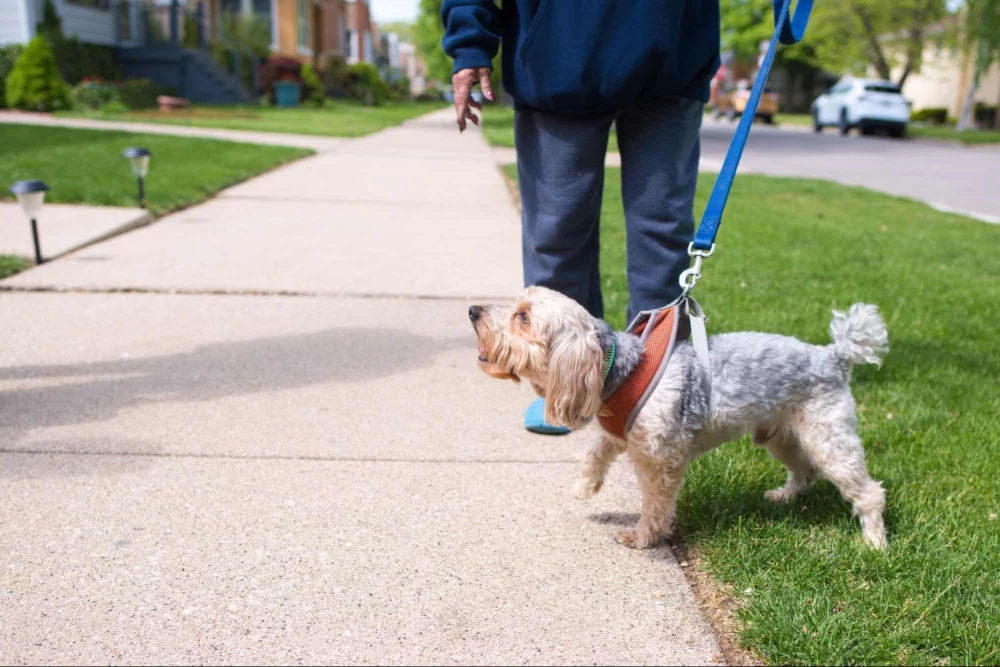How to Train Your Dog to Stop Barking at Night
Having a dog who barks incessantly at night can be incredibly frustrating, not just for you, but for your neighbors as well. I know this because I've been there. When I first got my dog, Max, he was a delightful puppy during the day, but at night, he would start barking for no apparent reason. At first, I assumed it was just a phase, but as the nights went on, the barking became unbearable. It was keeping me up, affecting my sleep, and causing tension in our household. That's when I decided I needed to take action to train him to stop barking at night. I quickly realized that understanding the root cause of the barking and using positive reinforcement techniques would be essential for getting a good night's sleep—and restoring peace to our home.

1946 S Christopher Columbus Blvd, Philadelphia, PA 19148, USA
See DetailsUnderstanding Why Dogs Bark at Night
The first step in training Max to stop barking at night was understanding why he was doing it in the first place. Dogs bark for many reasons, and it’s important to figure out what’s motivating the behavior. In Max’s case, I soon realized that he was barking out of boredom and anxiety. During the day, he had plenty of energy to burn, but at night, when the house was quieter, he didn’t know what to do with himself. The barking was his way of getting attention, or maybe he was trying to protect us from imaginary threats. Either way, it became a nightly ritual that had to stop.
Other common reasons why dogs bark at night include hunger, needing to go outside, separation anxiety, or simply because they’re not used to being left alone in the dark. Once you identify the root cause of your dog’s barking, it becomes much easier to address the problem effectively. I spent some time observing Max's behavior to figure out what was causing his nighttime barking. It wasn’t long before I realized that his barking wasn’t malicious—it was due to a lack of mental and physical stimulation during the evening hours.
Steps to Train Your Dog to Stop Barking at Night
Once I identified the cause of Max's barking, I started implementing a plan to address it. I found that training a dog to stop barking at night requires consistency, patience, and a little bit of creativity. Here’s what worked for us:
- Ensure Your Dog Gets Enough Exercise: One of the most effective ways to reduce nighttime barking is by ensuring your dog gets enough physical and mental stimulation during the day. I began taking Max on longer walks and incorporating playtime into our daily routine. The more energy he expended during the day, the more likely he was to settle down at night. By the time evening came around, he was tired and ready to rest instead of bark.
- Establish a Bedtime Routine: Dogs thrive on routine, so creating a consistent nighttime ritual can help Max feel more secure and relaxed when it's time to sleep. For Max, I started with a quick walk in the evening, followed by some calming playtime and then a consistent bedtime. I also made sure to give him a comfortable, quiet space to sleep in where he felt safe and secure.
- Don’t Reward the Barking: It can be tempting to respond to your dog's barking by offering attention, but this can actually reinforce the behavior. At first, when Max barked, I would get up and check on him, thinking he needed something. However, I soon realized that this only encouraged the barking. Instead, I started ignoring him when he barked at night, and eventually, he stopped expecting attention every time he vocalized.
- Use Positive Reinforcement: When Max stopped barking or remained quiet for a while, I made sure to reward him with treats and praise. Positive reinforcement is key in training any dog. Over time, Max learned that being quiet at night earned him rewards and attention, which encouraged him to continue the behavior.
- Provide a Comfortable Sleeping Space: If your dog’s barking is related to discomfort or anxiety, it may help to make their sleeping space more inviting. For Max, I set up a cozy bed in a quiet part of the house away from any distractions. I also used calming products like a dog-specific anxiety wrap, which helped him feel more secure during the night.
- Use Calming Techniques: On particularly restless nights, I turned to calming aids like lavender-scented candles or an anxiety-relieving dog bed. These calming methods helped Max relax and fall asleep without barking. Some pet owners also use pheromone diffusers designed to reduce anxiety in dogs, which could be helpful if your dog barks due to stress or separation anxiety.
How to Manage Separation Anxiety in Dogs
In some cases, nighttime barking is a result of separation anxiety, where your dog becomes upset when left alone. If this is the case for your dog, it’s important to address the anxiety rather than simply stop the barking. Max, for example, would bark loudly when I left the room, and I quickly realized that he didn’t like being alone at night. To help him cope, I started by gradually increasing the time I spent away from him during the evening. I would leave him in his bed for short periods and then return to reward him for being calm.
Over time, Max grew more comfortable being left alone in his bed at night. I also started leaving him with a safe, comforting item like a blanket or a toy to help him feel more secure. If your dog suffers from separation anxiety, it's important to be patient and consistent. Avoid punishing your dog for the barking, as it is often a sign of distress, and instead focus on helping them feel calm and secure when left alone.
When to Seek Professional Help
While most cases of nighttime barking can be resolved with the right training and attention, some dogs may continue to bark despite your efforts. If you’ve tried multiple techniques and your dog’s barking persists, it might be time to consult a professional dog trainer or veterinarian. There could be an underlying issue, such as pain, discomfort, or even a medical condition that is causing the excessive barking. A professional can help identify the root cause and guide you on the best course of action.
My Experience and the Results
After several weeks of consistent training, Max’s barking decreased significantly. While it didn’t happen overnight, the changes I made to his routine, exercise, and sleep environment helped him feel more relaxed and less anxious. Now, we enjoy peaceful nights without the disruption of barking, and I’ve learned that training a dog to stop barking at night requires patience, consistency, and a lot of positive reinforcement.
If you're struggling with a dog who barks at night, don’t get discouraged. By addressing the underlying cause of the barking and using positive, reward-based training methods, you can help your dog feel more secure and calm at night. With time, your dog will learn to rest quietly, and you’ll both be able to enjoy a peaceful night’s sleep.











